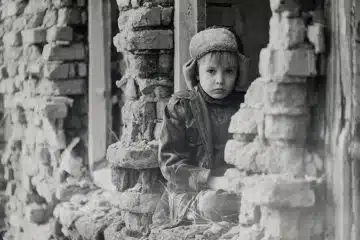Gaza: A people under attack amid the globalization of indifference
By Andrea Tornielli
The images of the strike’s aftermath speak volumes: a shell fired from an Israeli army tank directly hit the Holy Family Church, the only Catholic parish in Gaza.
Five hundred people—families who have lost their homes—have taken refuge in the compound comprising two churches and a school for almost two years.
Three people lost their lives, and another ten are injured. One of those injured, Suhail, contributes to L’Osservatore Romano with his small column: “I write to you from Gaza.”
The most recent, on July 8, was titled “Love Is Stronger Than War” and concluded as follows: “Let us pray that not only Gaza, but the whole world may one day live in peace, through mutual forgiveness and reconciliation. A day when there will be no more wars, because love is stronger than war.”
Israeli authorities have apologized, stating that it was a mistake, that Israel respects places of worship, and that an investigation will be conducted into the incident.
Such statements can hardly be reassuring. Not only because they are contradicted by the images of mosques reduced to rubble and churches attacked—the raid on the Orthodox church of Saint Porphyrius cost dozens of lives, for example—but also because, after a year and a half, there are still no results from the investigation into the killing of two Christian women shot by a sniper in the Gaza parish.
Particularly significant in this regard are the words spoken by the Israeli Ambassador to Italy, Jonathan Peled: “We have no intention of endangering civilian institutions. But the terrorists are everywhere, even in public buildings like schools and, unfortunately, places of worship.”
These statements are striking because, in some way, they provide the context for what has been described as a “mistake.” Five hundred unarmed people—many of whom regularly gather to pray the rosary—unwittingly became collateral targets because, as Ambassador Peled says, “these are sometimes the consequences of war.”













